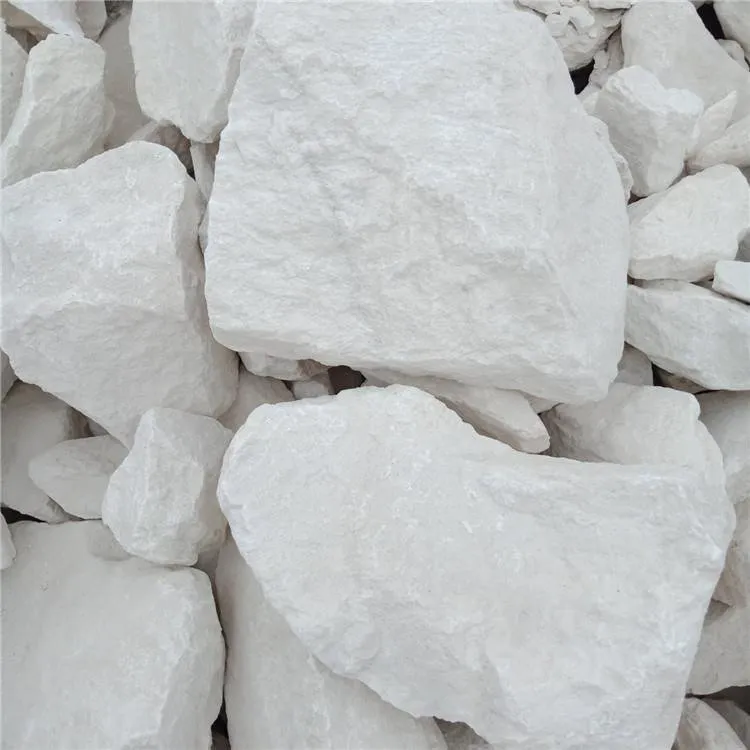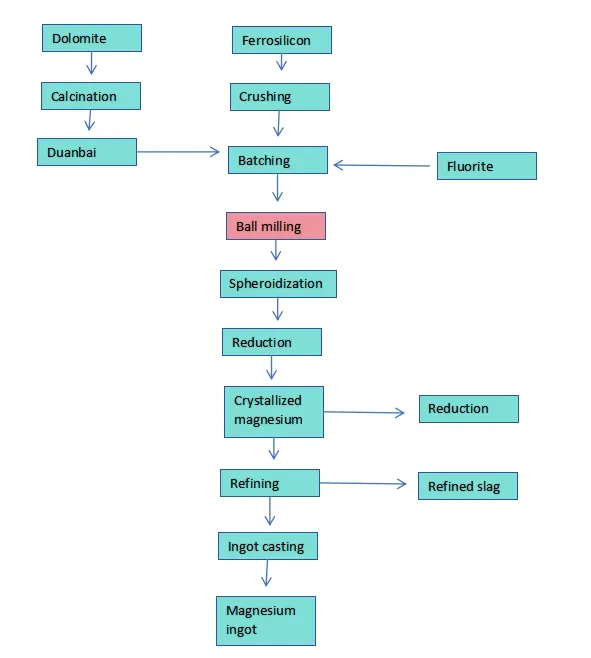Dolomit ist ein kalzium- und magnesiumreiches Karbonatgestein. Es besteht hauptsächlich aus Dolomit mit geringen Mengen an Kalzit, Tonmineralien, Feuerstein und Magnesit. Manchmal enthält es Gips, Anhydrit und Baryt. Es ist eines der vorteilhaften nichtmetallisches Mineral Ressourcen. Es verfügt über große Reserven, hohe Qualität und weite Verbreitung.

Anwendung von Dolomit
Metallurgische Feuerfestindustrie
Es wird als Magnesiumschlackenbildner in der Stahlherstellung verwendet, um geschmolzenes Silizium, Aluminium, Schwefel, Phosphor und andere unnötige oder schädliche Begleitelemente zu einer Schlacke zu verbinden, die sich leicht von geschmolzenem Stahl trennen lässt. Gewinnung von Magnesiummetall; feuerfeste Materialien für die Stahlherstellung usw.
Chemische Industrie
Es wird zur Herstellung von Magnesiumsulfat, Magnesiumoxid, leichtem Magnesiumcarbonat (gefälltes Magnesiumcarbonat), Magnesiasand und Gummi-/Kunststofffüllstoffen verwendet.
Bauindustrie
Es wird zur Herstellung von Magnesiumsulfatzement, Hochleistungs-Chlorid-Magnesium-Zement,
übergebrannte Kalksilikatsteine und zur Behandlung von Rissen in Gips- und Holzprodukten.
Land- und Forstwirtschaft
Saures Bodenverbesserungsmittel oder Neutralisator, Seuchenprävention, Pestizid usw.
Glasindustrie
Kalkstein und Dolomit sind neben Quarzsand und Soda die drittgrößten Bestandteile der Glasrohstoffe. Sie wirken als Flussmittel und können die Glasalterung verlangsamen, die Plastizität von Farbglas verbessern und die Glasfestigkeit erhöhen.
Keramische Industrie
Dolomit wird in Keramikrohlingen und Glasuren verwendet, und MgO und CaCO3 werden eingeführt, um Talk und Kalzit zu ersetzen.
Umweltschutz
Dolomitfiltermaterialien werden in der Wasseraufbereitung eingesetzt. Sie eignen sich zur Neutralisierung von Trinkwasser, Brauchwasser und Schwimmbadwasser. Sie helfen außerdem bei der Entfernung von Eisen, Mangan und Silikaten.
Schmelzen von Magnesiummetall
Dolomit mit einem Partikelgröße Magnesium mit einer Korngröße von 30–120 mm ist ein wichtiger Rohstoff für die Herstellung von metallischem Magnesium. Die Schmelzverfahren werden hauptsächlich in zwei Typen unterteilt: Elektrolyse und silikothermische Reduktion. Derzeit wird im Inland hauptsächlich die silikothermische Reduktion angewendet. Das mit diesem Verfahren produzierte Magnesium macht 20% der gesamten Magnesiumproduktion aus.
Das Pidgeon-Verfahren zur Magnesiummetallschmelze

Herstellung von Magnesiumcarbonat
Leichtes Magnesiumcarbonat
Leichtes Magnesiumcarbonat ist ein hochwertiger anorganischer Füllstoff, Verstärkungsmittel und wirksamer Flammschutz in der Gummi- und Kunststoffindustrie. Es wird als Füllstoff in hochwertigen Tinten, Pigmenten, Zahnpasta und Kosmetika verwendet. Es dient auch als Rohstoff für hochwertige Keramik, Glas und feuerfeste Beschichtungen.
Aufgrund der Verwendung unterschiedlicher Rohstoffe gibt es drei Hauptproduktionsverfahren: Dolomitkarbonatisierung, Solekarbonatisierung und Ammoniumsulfat-Umwandlung. Derzeit wird das Dolomitkarbonatisierungsverfahren in China häufig zur Herstellung von leichtem Magnesiumcarbonat eingesetzt.
Leichtes sphärisches Magnesiumcarbonat
Leichtes, sphärisches Magnesiumcarbonat verfügt über eine hervorragende Füll-, Dispergier- und Fließfähigkeit.
Es erhöht die Zugfestigkeit und Verschleißfestigkeit von Gummi und ist somit ein hervorragender Füllstoff und Verstärkungsmittel für Gummi- und Kunststoffprodukte. Es wird auch als Füllstoff in Branchen wie Lacken, Zahnpasta, Kosmetika und Pharmazeutika verwendet.
Leicht transparentes Magnesiumcarbonat
Leichtes, transparentes Magnesiumcarbonat zeichnet sich durch feine Partikel mit gleichmäßiger Partikelgröße aus. Es ist ein raffiniertes anorganisches chemisch Produkt. Neben der Verwendung als Zusatzstoff in Farben, Lacken, Tinten, Zahnpasta, Pharmazeutika und Kosmetika wird es vor allem als Füllstoff und Verstärkungsmittel in transparenten oder hellen Gummiprodukten eingesetzt.
Herstellung von leichtem Magnesiumoxid
Leichtes Magnesiumoxid kann als Füllstoff und Verstärkungsmittel in Papier, Beschichtungen, Kunststoffen und Gummi verwendet werden. Es ist ein Rohstoff für hochwertige hitzebeständige Tiegel und Keramik. Es wird auch als Poliermittel, Weichmacher für Glasfaser, Oberflächenveredelung und andere Materialien verwendet. Beschichtung für Siliziumstahlbleche und als Antazidum und mildes Abführmittel in Arzneimitteln.
Abschluss
Zusammenfassend lässt sich sagen, dass Dolomit ein vielseitiges und wertvolles Mineral mit einem breiten Anwendungsspektrum in verschiedenen Branchen ist. Von der Stahlerzeugung und Wasseraufbereitung bis hin zur Herstellung hochwertiger Magnesiumprodukte und Hochleistungskeramik machen seine einzigartigen Eigenschaften ihn unverzichtbar. Als natürlicher Rohstoff und Industriewerkstoff spielt Dolomit weiterhin eine entscheidende Rolle in der Entwicklung vieler Branchen und unterstützt die kontinuierliche Innovation und Nachhaltigkeit moderner Industrien. Um sein volles Potenzial auf dem heutigen Markt auszuschöpfen, ist es unerlässlich, seine Zusammensetzung, Verarbeitungsmethoden und Verwendungsmöglichkeiten zu verstehen.
Episches Pulver
Epic Powder – über 20 Jahre Erfahrung in der Ultrafeinpulverindustrie. Wir fördern aktiv die zukünftige Entwicklung von Ultrafeinpulver mit Schwerpunkt auf Zerkleinerung, Mahlung, Klassifizierung und Modifizierung von Ultrafeinpulver. Kontaktieren Sie uns für eine kostenlose Beratung und individuelle Lösungen! Unser Expertenteam bietet Ihnen hochwertige Produkte und Dienstleistungen, um den Wert Ihrer Pulververarbeitung zu maximieren. Epic Powder – Ihr zuverlässiger Experte für Pulververarbeitung!
